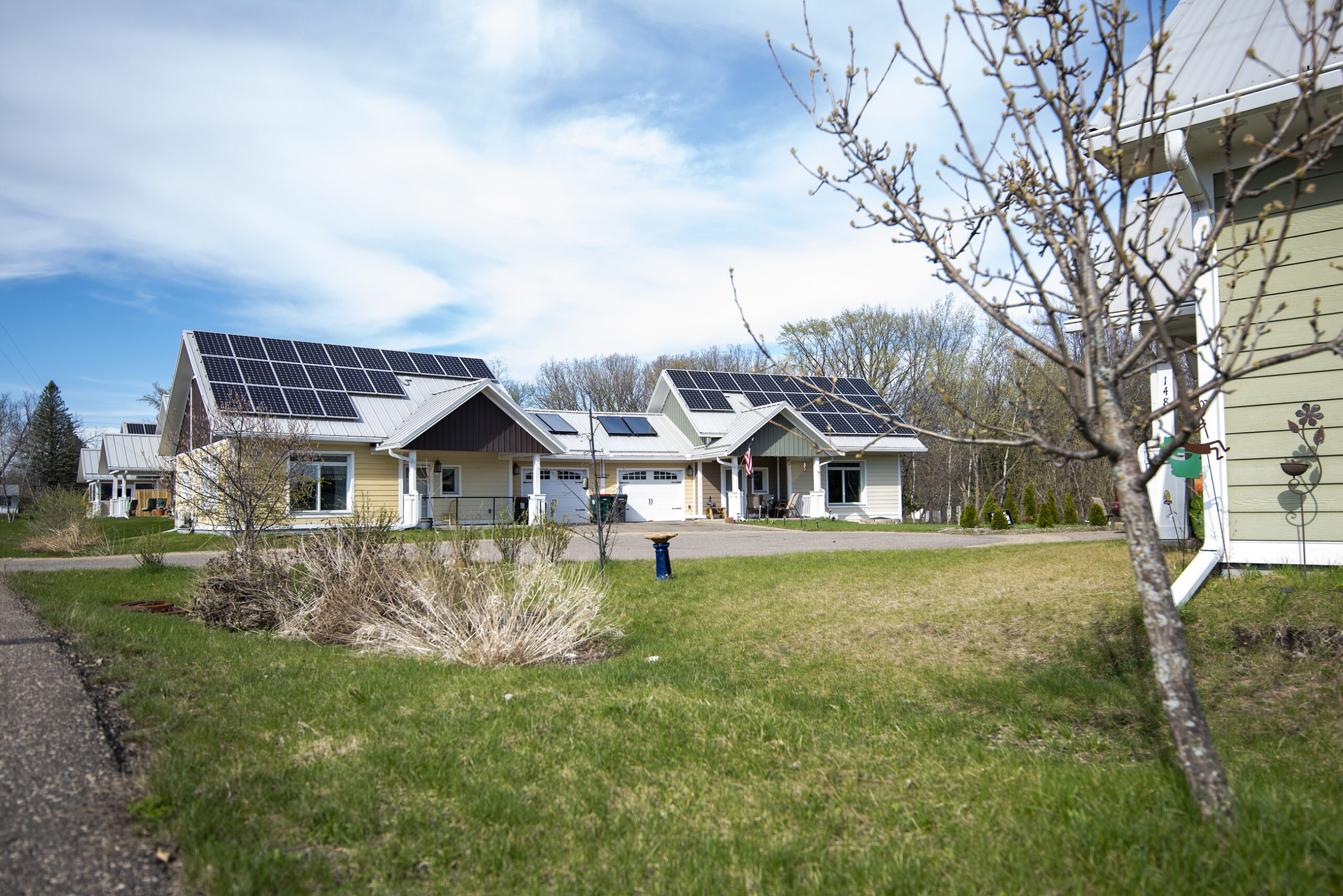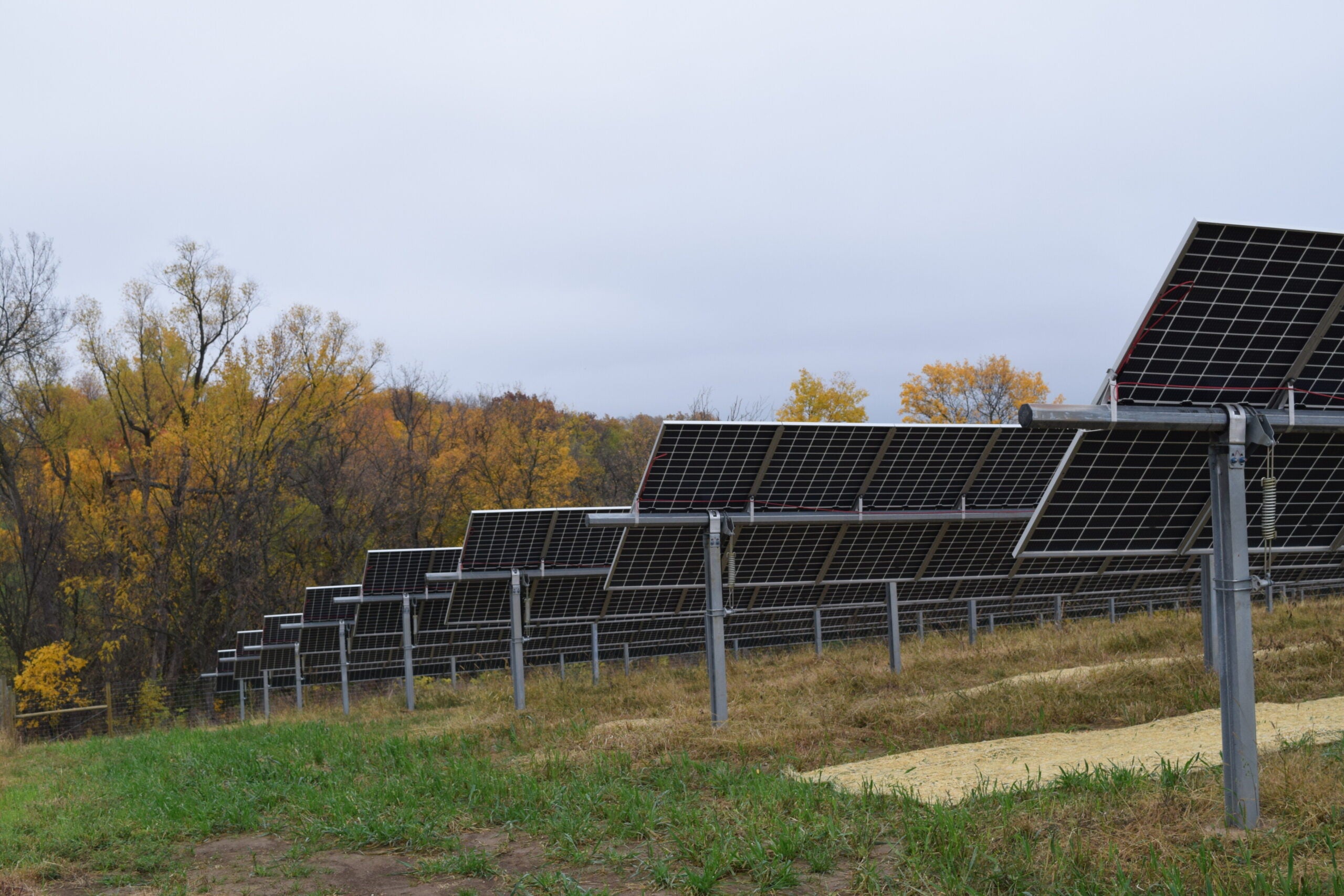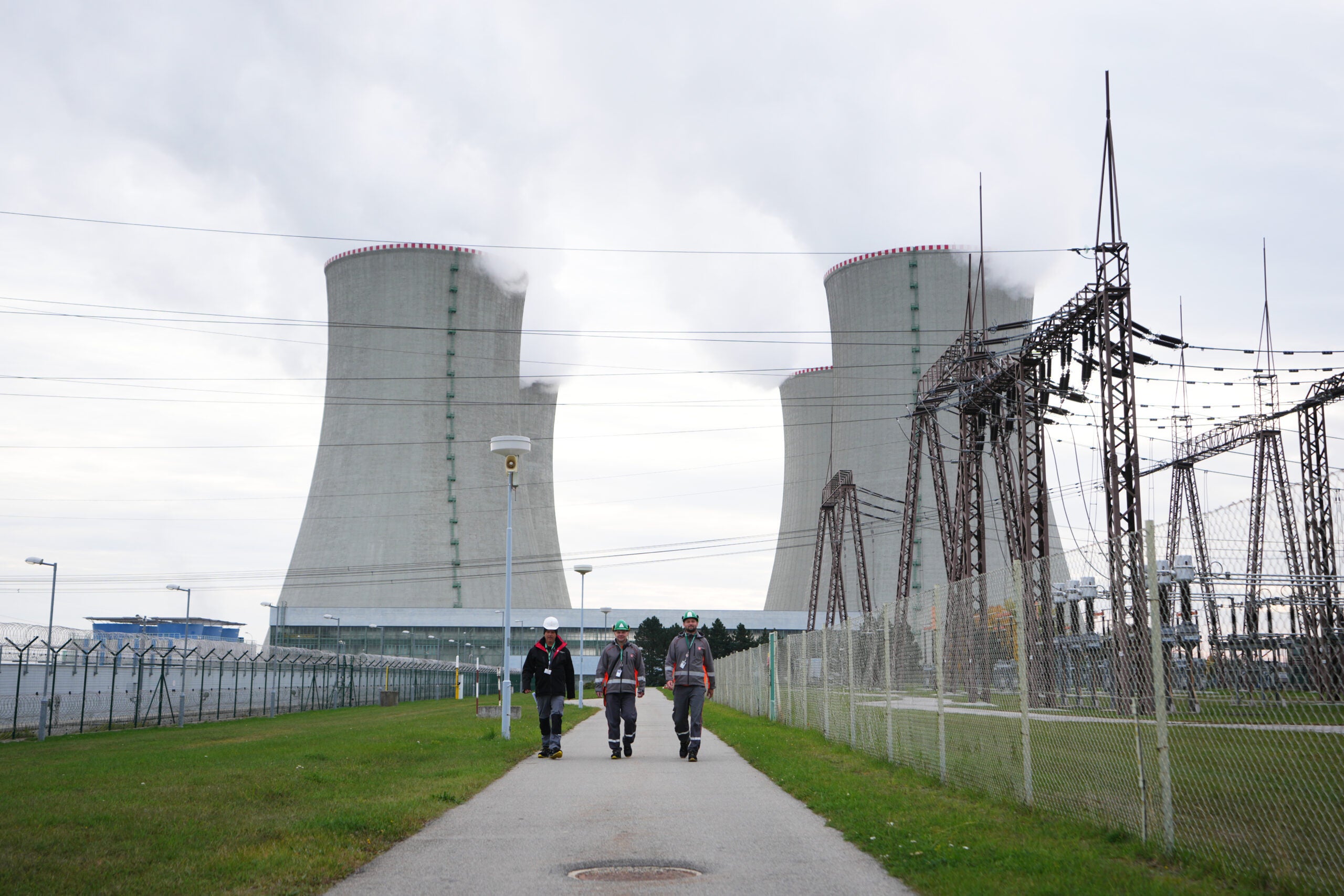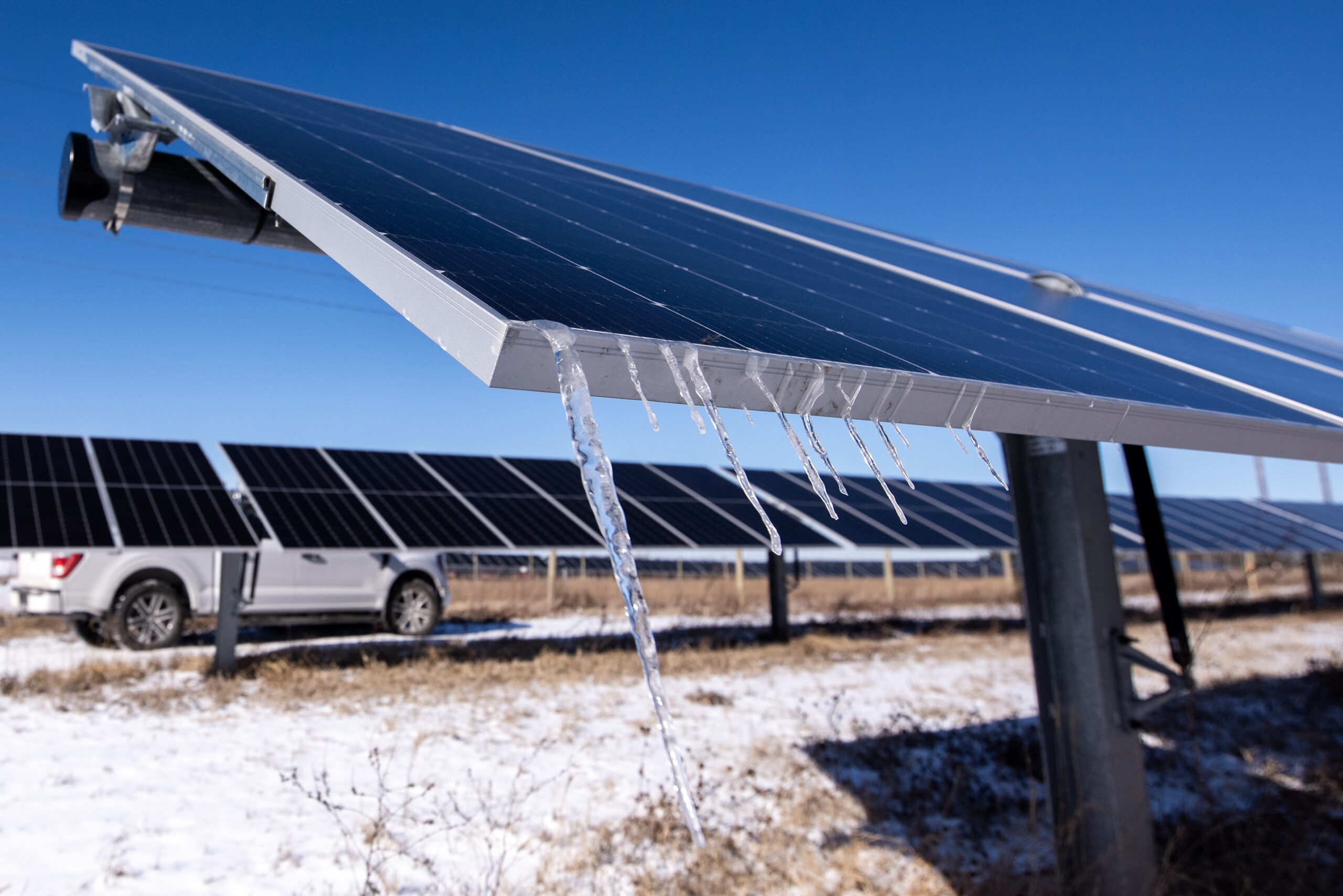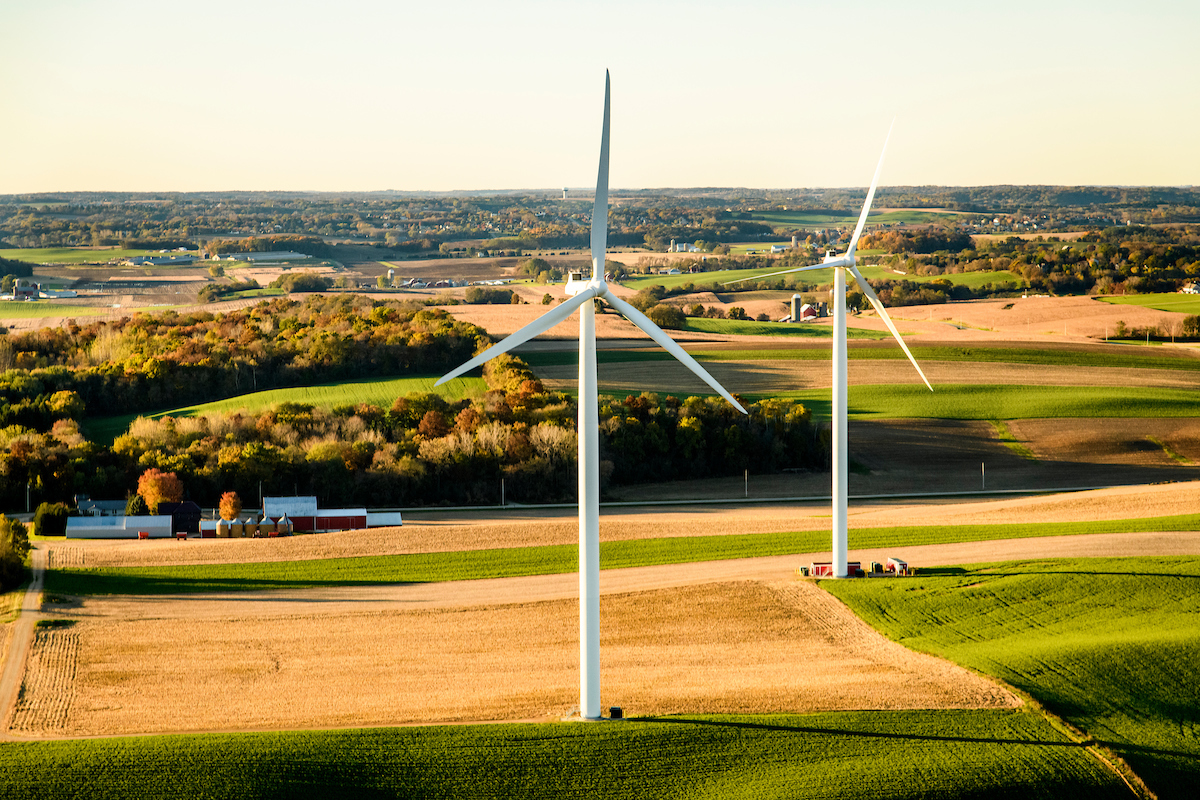Republican lawmakers are looking to introduce a bill that would make it more affordable for Wisconsin residents, businesses and local governments to invest in solar power and support the clean energy transition. The proposal is being met with open arms from solar advocates, while the state’s utilities association opposes the legislation.
Sen. Rob Cowles, R-Green Bay, and Rep. Rachael Cabral-Guevara, R-Appleton, say the proposal would allow leasing of solar panels and eliminate confusion under state law that’s effectively barred third party financing of solar systems.
Such financing allows an entity other than a utility, such as a solar developer, to pay the upfront cost of a solar installation, allowing the customer to pay it off over time.
News with a little more humanity
WPR’s “Wisconsin Today” newsletter keeps you connected to the state you love without feeling overwhelmed. No paywall. No agenda. No corporate filter.
Another form of third party financing involves power purchase agreements where solar installers sell the power generated to a customer at a fixed rate that’s often lower than those provided by an electric utility, according to the U.S. Environmental Protection Agency.
“If you don’t have or want to spend thousands of dollars upfront on installation, leasing and lease-to-own options have removed this barrier to entry for households in every other state — except here in Wisconsin,” the lawmakers wrote in a memo seeking co-sponsors for the bill. “This legislation simply allows Wisconsinites the ability to lease solar systems, like already commonly done for vehicles.”
The legislation would clarify that solar installers or developers who lease equipment to customers are not public utilities that are subject to regulation. The lawmakers say internal guidance from the state Public Service Commission, or PSC, has indicated third party financing of small-scale renewables would meet the definition of a public utility, requiring developers to get approval to sell power.
Large investor-owned utilities argue the law only allows regulated utilities to sell electricity, preventing leasing options. The bill would bar public electric utilities from refusing to connect renewable energy systems that generate electricity to the grid.
“The fact that Wisconsin doesn’t have this clear option on the table means that we’re probably not seeing the amount of solar growth that we would see if people had all the financing tools at their fingertips that other people in other states have,” said Heather Allen, executive director of RENEW Wisconsin.
Organizations such as schools or churches would also be able to take advantage of federal tax credits through third party financing — an option that isn’t currently available to them due to their tax-exempt status. RENEW Wisconsin said 28 states have policies that allow third party financing and remove barriers to solar installation.
Gov. Tony Evers has set a goal for Wisconsin to consume carbon-free electricity by 2050. The state’s largest investor-owned utilities have made their own pledges to go carbon-neutral in the power sector, but solar advocates say the financing tool would expand access to emission-free electricity.
The Wisconsin Utilities Association strongly opposes the proposal. Bill Skewes, the association’s executive director, said there’s nothing under current law that prevents people from leasing solar panels.
“We just don’t think it’s a good idea to change the statutes to allow these solar companies to operate as unregulated utilities,” said Skewes. “We think it would trigger a cost shift to those customers who don’t participate in the programs, and many of those folks are renters and low-income people.”
Skewes pointed to a University of California Berkley study that found lower income ratepayers are bearing a greater burden of energy costs as wealthier customers get power from rooftop solar. He added that Wisconsin utilities’ can provide renewable energy to customers at a larger scale for less than the cost of rooftop solar projects.
The issue of third party financing is the focus of at least two lawsuits. The Midwest Renewable Energy Association sued the PSC earlier this year, arguing regulators are overstepping their authority by preventing leasing options. The Milwaukee Journal Sentinel reported that Iowa developer Eagle Point Solar also sued the commission and utility We Energies. The company wanted to install solar panels on buildings in Milwaukee, but the utility wouldn’t allow those systems to connect to the utility’s system.
Bill Bailey, president of nonprofit group Cheq Bay Renewables, thinks large investor-owned utilities oppose the legislation because they have a monopoly on selling power to customers.
“They’re fearful that this might represent a loss of income for them. I have a different perspective on it,” said Bailey. “And that is, as we electrify everything, the transportation industry, or we try to replace natural gas through heat pumps and stuff, the utilities are going to have plenty of business. Electric usage will probably go up.”
Bailey pointed to a study from Michigan Tech University that found utilities need to make fewer infrastructure investments and see smaller peaks in energy demand when customers with solar panels are tied into the grid.
The Wisconsin Conservative Energy Forum supports the draft legislation by lawmakers, saying it removes barriers that prevent businesses from accessing a growing market for solar energy.
“Solar is a product like any other and consumers in our state should have the ability to pay for and finance that product however they see fit,” said Scott Coenen, the forum’s executive director, in a statement.
Wisconsin Public Radio, © Copyright 2026, Board of Regents of the University of Wisconsin System and Wisconsin Educational Communications Board.

